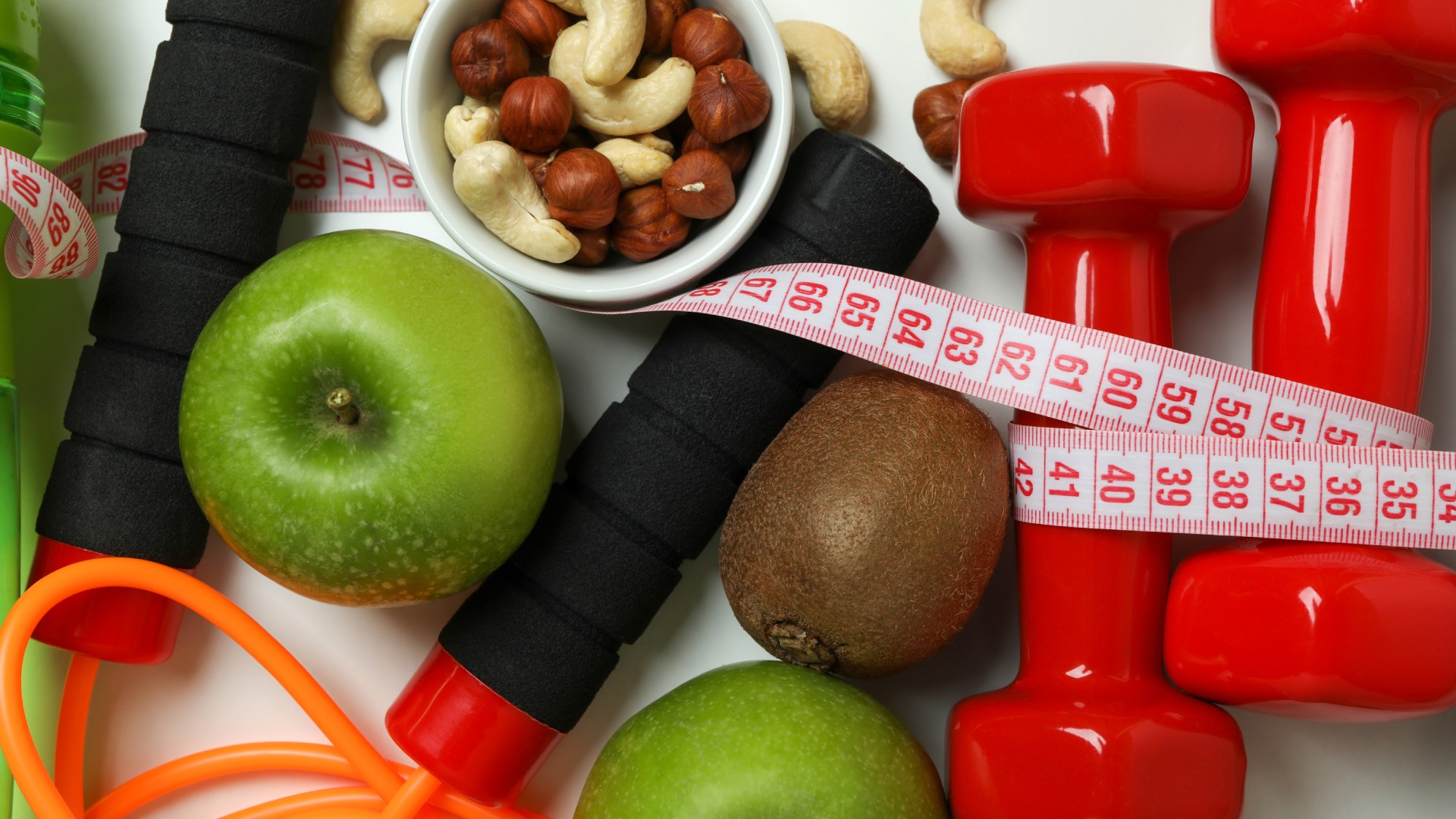The Importance of Nutrition and Exercise
At Hazelwood Family Medicine, we understand the critical role that nutrition and exercise play in enhancing overall well-being. Below, we explore how these elements impact energy levels and the myriad benefits of physical activity.
Impact on Energy Levels
Nutrition is the foundation of a healthy lifestyle. What we eat directly affects our energy levels, metabolism, and overall health. A well-balanced diet provides us with the essential nutrients needed to fuel our bodies and maintain optimal energy throughout the day.
| Nutrient | Example Foods | Role in Energy |
|---|---|---|
| Carbohydrates | Whole grains, fruits | Primary source of energy |
| Proteins | Lean meats, legumes | Repairs and builds muscle |
| Fats | Nuts, avocados | Long-term energy storage |
| Vitamins & Minerals | Vegetables, dairy | Support metabolic processes |
A good diet can help provide the energy needed for physical activities like finishing a race or enjoying casual sports. It is crucial to avoid taking in more energy than expended during exercise to improve performance (MedlinePlus).
Benefits of Physical Activity
Physical activity is an essential component of a healthy lifestyle, offering numerous benefits. Engaging in regular exercise can improve physical and mental well-being in multiple ways.
- Improved Cardiovascular Health: Exercise strengthens our heart muscles, improving circulation and reducing the risk of heart disease.
- Increased Muscle Strength and Flexibility: Activities such as strength training and yoga enhance muscle tone and flexibility.
- Better Mental Health: Physical activity releases endorphins, also known as ‘feel-good’ hormones, which can help alleviate symptoms of depression and anxiety.
- Enhanced Metabolism: Regular exercise boosts our metabolic rate, aiding in weight loss and management.
- Greater Stamina and Endurance: Consistent exercise increases our stamina, allowing us to perform daily tasks more efficiently.
According to the US Physical Activity Guidelines, people of all shapes, sizes, and abilities can benefit from being physically active (Missouri Department of Health and Senior Services). Some physical activity is better than none, and the more we do, the greater the benefits we gain.
At Hazelwood Family Medicine, we are committed to helping our patients achieve their health goals through a balanced approach to nutrition and exercise. Whether you need guidance from a primary care physician or are looking for support in specialized areas like women’s health or suboxone treatment, our team is here to support your journey to well-being.
Interconnection of Nutrition and Fitness
Understanding the interconnection between nutrition and exercise can significantly enhance our overall well-being. Let’s delve deeper into how these two crucial elements complement each other and contribute to a healthier lifestyle.
Complementary Relationship
Nutrition and exercise are inherently interconnected, each amplifying the benefits of the other. A well-balanced diet fuels our bodies with the essential nutrients needed for physical activities, from casual sports to intensive workouts (MedlinePlus). Here’s a closer look at how they work together:
- Energy Provision: Carbohydrates are the primary energy source for exercise. Consuming sufficient carbs ensures that we have the energy to perform and sustain physical activities. Conversely, after these carb stores are depleted, proteins come into play, aiding in energy production and tissue repair.
- Muscle Growth and Repair: Regular physical activity causes wear and tear on muscle tissues, and protein is essential for their repair and growth. A protein-rich diet supports muscle recovery, making it easier for us to maintain a consistent exercise regimen.
- Enhanced Metabolic Function: Exercise boosts metabolism, which helps in better digestion and nutrient absorption. A nutrient-dense diet, in turn, provides the necessary vitamins and minerals to optimize metabolic processes.
| Nutrient | Function in Exercise |
|---|---|
| Carbohydrates | Primary energy source |
| Proteins | Muscle growth and repair |
| Fats | Long-term energy storage |
| Vitamins & Minerals | Enhance metabolic functions |
Enhancing Overall Well-being
A well-rounded approach combining proper nutrition and regular exercise significantly enhances our overall well-being. Here are some ways they contribute to a healthier lifestyle:
- Improved Mental Health: Regular physical activity releases endorphins, which help reduce stress and improve mood. Coupled with a balanced diet rich in omega-3 fatty acids, vitamins, and minerals, it further supports cognitive function and emotional stability.
- Weight Management: Maintaining a healthy weight is more achievable when we balance calorie intake with physical activity. By avoiding the intake of more calories than are expended during exercise, we can effectively manage and maintain our weight (MedlinePlus). To learn more, visit our section on weight loss.
- Reduced Risk of Chronic Diseases: Regular exercise and a nutritious diet can lower the risk of chronic diseases such as diabetes, heart disease, and obesity. The synergy between physical activity and dietary choices strengthens the immune system and promotes overall longevity.
For personalized recommendations on integrating nutrition and fitness into your lifestyle, consider consulting with a primary care physician. They can provide tailored advice that aligns with your specific health needs.
Incorporating balanced nutrition and consistent exercise into our daily routines can truly ignite our well-being, leading to a healthier and more fulfilling life. For additional wellness and healthcare services, such as women’s health, body contouring, and more, visit our comprehensive healthcare offerings.
Role of Macronutrients in Exercise
Understanding the role of macronutrients is crucial for optimizing nutrition and exercise. Carbohydrates and proteins play vital roles in fueling our workouts and supporting muscle growth.
Carbohydrates for Energy
Carbohydrates are the primary fuel source for our muscles and brain during physical activity. They are stored mainly in the muscles and liver. It’s important to consume carbohydrates before, during, and after exercise, especially if the exercise exceeds one hour or involves intense aerobic activity. This helps to maintain energy levels and improve endurance.
| Time of Consumption | Suggested Intake |
|---|---|
| Before Exercise | 3-4 grams per kilogram of body weight |
| During Exercise | 30-60 grams per hour |
| After Exercise | 1.2 grams per kilogram of body weight |
Consuming carbohydrates before exercise provides the necessary energy to fuel your workout, while during exercise, they can help to sustain endurance. Post-exercise, carbohydrates aid in replenishing glycogen stores that have been depleted during the workout. For more personalized guidance, consider consulting your primary care physician.
Proteins for Muscle Growth
Proteins are essential for muscle growth and tissue repair. While carbohydrates are the primary energy source during exercise, protein can be used for energy once carbohydrate stores are depleted (MedlinePlus). It’s critical to achieve a balance to ensure adequate intake of both macronutrients.
| Protein Requirements | Grams per Kilogram of Body Weight |
|---|---|
| Adults | 0.8 |
| Exercisers | 1.2 – 2.0 |
| Older Adults | 1.2 – 1.7 |
Protein intake is vital post-exercise to support muscle repair and growth. The University of Rochester Medical Center suggests that exercisers and older adults may need higher protein intake. For those focusing on weight loss or muscle building, consuming a balanced diet with the right macronutrients is key.
By understanding the role of carbohydrates and proteins, we can better manage our exercise routines and dietary habits, ensuring optimal performance and recovery. Enjoying a balanced diet and regular physical activity supports overall well-being, making it easier to achieve our health and fitness goals.
Importance of Hydration in Physical Activity
Hydration is a critical component of both nutrition and exercise, directly affecting our performance and overall health. At Hazelwood Family Medicine, we emphasize the importance of maintaining proper hydration to support your well-being.
Water for Hydration
Water is a vital nutrient, especially for those engaging in physical activities. It aids in maintaining hydration levels and regulating body temperature. During periods of vigorous exercise, the body can lose several liters of sweat per hour, underscoring the need for consistent fluid intake.
| Physical Activity | Sweat Loss (Liters per Hour) |
|---|---|
| Light Activity | 0.5 – 1 |
| Moderate Activity | 1 – 1.5 |
| Vigorous Activity | 1.5 – 4 |
Proper hydration ensures optimal muscle function, helps prevent cramps, and reduces the risk of dehydration-related issues such as heat exhaustion. As part of our holistic approach to healthcare, we advise incorporating regular water breaks and monitoring fluid intake. To explore additional wellness services, visit our family medicine section.
Monitoring Hydration Status
Monitoring hydration status is essential for maintaining health during physical exertion. One practical method is observing urine color. Clear or light-colored urine typically indicates proper hydration, while dark urine may signal dehydration. It’s advisable to replace any weight lost during exercise with an equivalent amount of fluids within the next six hours.
| Urine Color | Hydration Status |
|---|---|
| Light Yellow / Clear | Well Hydrated |
| Medium Yellow | Slightly Dehydrated |
| Dark Yellow / Amber | Dehydrated |
Fluid losses during exercise should be limited to no more than 2% of body weight to avoid performance impairment. In some cases, carefully planned hyperhydration prior to an event can improve heat tolerance. For more personalized hydration strategies, you may consult with our primary care physicians.
By prioritizing hydration, we can significantly enhance our physical activity performance and overall health. Visit weight loss and body contouring sections to learn more about how proper hydration fits into overall fitness and health regimens.
Achieving Balance for Optimal Performance
Balancing nutrition and exercise is essential for maintaining optimal health and performance. At Hazelwood Family Medicine, we believe in a holistic approach to well-being that includes both a balanced diet and regular physical activity.
Balanced Diet Recommendations
A balanced diet includes consuming the right amount of calories and nutrients to maintain a healthy weight. According to the US Dietary Guidelines for Americans, a balanced diet should consist of:
- Fruits and Vegetables: Aim for half your plate to be fruits and vegetables.
- Grains: Make at least half your grains whole grains.
- Protein: Include a variety of protein sources, such as lean meats, poultry, fish, eggs, beans, and nuts.
- Dairy: Opt for low-fat or fat-free dairy products.
- Fats: Choose healthy fats such as those from fish, nuts, and olive oil.
| Food Group | Daily Recommendation |
|---|---|
| Fruits | 1-2 cups |
| Vegetables | 2-3 cups |
| Grains | 5-8 ounces |
| Protein | 5-6.5 ounces |
| Dairy | 3 cups |
| Oils | 5-7 teaspoons |
For more personalized dietary recommendations, you can consult with our primary care physician or a nutrition expert.
Physical Activity Guidelines
Regular physical activity is crucial for enhancing overall well-being. The US Physical Activity Guidelines recommend:
- Aerobic Activity: At least 150 minutes of moderate-intensity or 75 minutes of vigorous-intensity aerobic physical activity per week.
- Strength Training: Muscle-strengthening activities on two or more days a week.
- Flexibility: Incorporate stretching exercises to improve range of motion.
| Activity Type | Weekly Recommendation |
|---|---|
| Moderate-Intensity Aerobics | 150 minutes |
| Vigorous-Intensity Aerobics | 75 minutes |
| Muscle-Strengthening | 2 or more days |
Different exercise programs, such as strength, endurance, and combined workouts, offer various health benefits (NCBI). Regardless of the exercise type, integrating physical activity into your routine significantly improves health outcomes.
For specific fitness goals, consult with our health professionals, specializing in various services including weight loss, emsculpt neo, and body contouring.
By following these balanced diet recommendations and physical activity guidelines, you can achieve optimal performance and enhance your overall well-being. For tailored health and wellness advice, visit Hazelwood Family Medicine for all of your healthcare needs.
Nutrition Strategies for Athletes
Pre-Exercise Nutrition
Before engaging in physical activity, it is essential to fuel our bodies with the right nutrients. Pre-exercise nutrition plays a crucial role in enhancing performance, sustaining energy levels, and preventing fatigue. Here is a detailed breakdown of nutritional considerations before working out:
Carbohydrates
Carbohydrates are the primary source of energy during exercise. They are stored in our muscles and liver as glycogen. Consuming carbohydrates before exercise helps to ensure that glycogen stores are topped up, which is especially important for activities lasting longer than an hour or involving intense aerobic effort (MedlinePlus).
| Recommended Carbohydrate Intake (grams) | Timing Before Exercise |
|---|---|
| 1-4 g/kg body weight | 1-4 hours |
Proteins
While proteins are crucial for muscle growth and tissue repair, they should be consumed in balance with carbohydrates. Proteins can be used for energy after carbohydrate stores are depleted. It is vital to avoid overconsumption of protein pre-exercise, as it can reduce the intake of carbohydrates, limiting the primary energy source.
Fats
It is advisable to limit fat intake before athletic events as they are slower to digest and can lead to gastrointestinal discomfort during exercise.
To support our dietary needs effectively, we can seek guidance from a primary care physician who can provide personalized nutritional advice.
Post-Exercise Recovery Essentials
After intense physical activity, our bodies need to recover and rebuild. Post-exercise nutrition is crucial for replenishing glycogen stores, repairing muscles, and reducing muscle soreness.
Carbohydrates
After a workout, consuming carbohydrates helps replenish depleted glycogen stores. This is particularly important after prolonged or high-intensity exercise.
| Recommended Carbohydrate Intake (grams) | Timing Post-Exercise |
|---|---|
| 1.0-1.5 g/kg body weight | Within 30 minutes to 2 hours |
Proteins
Proteins aid in muscle repair and growth. A combination of protein and carbohydrates post-exercise can enhance muscle glycogen recovery and protein synthesis.
| Recommended Protein Intake (grams) | Timing Post-Exercise |
|---|---|
| 10-20 g | Within 30 minutes to 2 hours |
Hydration
Water is an essential nutrient for maintaining hydration and regulating body temperature during and after exercise. Rehydrating is critical, especially after prolonged or intense physical activity that results in significant perspiration. Monitoring urine color can be an effective way to assess hydration status.
For tailored guidance on achieving optimal nutrition and exercise outcomes, individuals can benefit from consulting healthcare professionals at Hazelwood Family Medicine. They offer comprehensive services, from weight loss programs to specialized women’s health services, ensuring that we can meet our health and wellness goals effectively.







